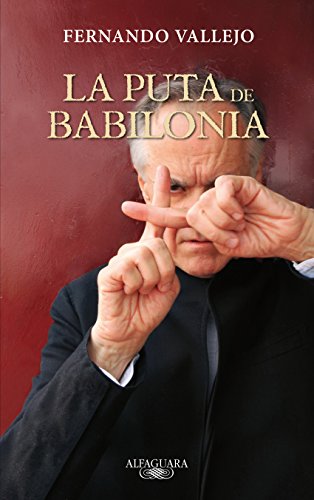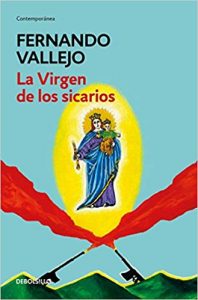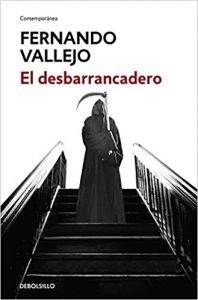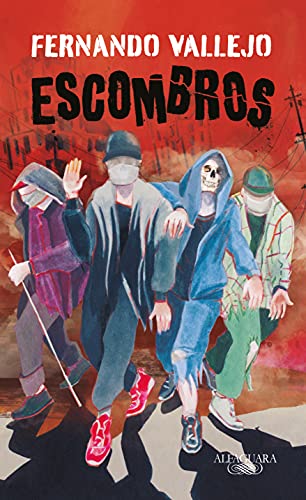Drinking from the Colombian genius of García Márquez and under the Mexican influence of Juan Rulfo, Fernando Vallejo placeholder image He is a multidisciplinary creator who finally stood out in his novelistic facet above many other of his creative talents.
Because Fernando Vallejo's was initially the movie script, film direction. But that literary heritage of his country of birth and that of his host finally broke in with unusual force.
And once he was writing, Vallejo was not fussy. The topic of an author's commitment acquires in him the firm search for the truth from his characters to his settings and his plots. Everything narrated by Vallejo acquires that significance of fiction as an extension of reality.
Of course, with this way of understanding literature, his bibliography also includes copies focused on thought and essay, thus finally turning the writer into that chronicler of what has been lived as a brilliant intrahistory from which to soak up vivid notions of our passage through it. world.
Top 3 recommended books by Fernando Vallejo
The whore of Babylon
The catholic church, like any other religion, on the other hand, has a lot of milonga in force until well into the twentieth century.
But little by little, social, political and moral awakenings of all kinds tore apart the institutions that were supposed to govern the moral and precisely hesitant, lukewarm, if not perverse, when it came to defending the human in a balanced ecosystem. Vallejo chose this title conscientiously, with the idea of being insulting. Because after centuries of insults to intelligence, it never hurts that someone surrenders to the cause of deicide, of the iconoclastic among so many religions determined to maintain the status quo instead of seeking the common good.
We start in this book from the role of John Paul II, as apparently naive as intricately pernicious in the light of objective evidence focused on a control of clearly individual human aspects reconverted to universal rights over which only the Church can rule just because, because they enjoy of the superiority of his ecclesiastical exercise. Aspects around life and death, birth control or AIDS, the worst wars by grace of religion, domination and the yoke of the peoples ... Exhaustive documentation towards an intention of judgment perhaps sometimes too summary, but judgment at the end of the day of man starkly seeking his freedom not to believe and not have to be prosecuted for it.
The virgin of the hitmen
The human being is a contradiction. And the creator even more so. Fernando Vallejo in this novel gets on his horse and rides his contradictions at a gallop. Not because we find discordant notes in the novel. Not at all.
This story is one of those exciting plots with a great social component. All in a setting that whoever writes here contemplates with the admiration of the traveler who was once there, in that Medellín surrounded by hills, some of them crowded with old streets and shacks, on a valley in which prosperity and mixture spread. . The social miscegenation of those who do well and those who try to seek their own good in whatever way. And that Medellín is no longer what it used to be, thank God ... Because this novel goes back to a few years before my visit, when being a hit man was an easily accessible opposition for any boy.
Like a modern Lazarillo from overseas, this plot delights us between misery and pretense of glory, between dreams and despair. Crudeness but also emotionality for a set that awakens those contradictions initially indicated in the abandonment of the moral, in the surrender to the new world in which it is already known that God does not exist or did not exist.
The ravine
When a writer as direct and at the same time fascinating as Fernando Vallejo offers a story with overtones of the maximum likelihood of his own life, there is no other choice but to face this novel with a heavy heart from the first page.
Everything that is past is always faced with mixed feelings, to a greater or lesser extent, of happiness, nostalgia and blame for everything that has passed through the sieve of the irretrievable, the irremediable.
To make matters worse, we are faced with one of those last visits to his brother, in this case to a Darío who is turning pale with AIDS. As we delve into those last shared moments, the protagonist's memories link directly with the author's feelings about that old homeland left, for whatever reasons.Because withdrawals, departures from the scene, always have a more or less large, more or less intense part of debt. Life becomes more intense when the decisions made can no longer be turned around, in parallel with life escaping from the body of Dario, the brother.
Faced with the tender relationship with the brother who is leaving, the fierceness with which the protagonist (and the author) undertake the frustration of impossible relationships with other members of the family. The detachment with the political and the religious of a place to which the protagonist would like to belong but cannot end up composing a tragic scenography that goes beyond even death.Other recommended books by Fernando Vallejo
Debris
Worse than ashes, rubble. There is no purifying fire that takes everything away, but remains of the disaster erected as new totems of decadence and complete fall. The worst is the feeling of self-destruction of civilization. It is not that the most gloomy thoughts come for free, we all see the shadows of the world in moments of decay. But there are times when we all perceive that near abyss, we talk about wars, pandemics or irreparable losses that always end up arriving.
In Debris, a book that directly connects with one of the most emblematic and recognized works of the author, El desbarrancadero, Fernando Vallejo narrates the arrival of the night of the world, that time that goes from the agony of his partner, the Mexican set designer David Antón ( which coincides with the earthquake that devastated Mexico City in 2018) and his death, and the current moment, marked by a pandemic that keeps the entire planet on edge.
The personal story of the author, the loss of his life partner of more than fifty years and his return to Colombia serve as a metaphor for today, a world in destruction in which the narrator walks through a city where he can only see ghosts.





3 comments on «3 best books by Fernando Vallejo»